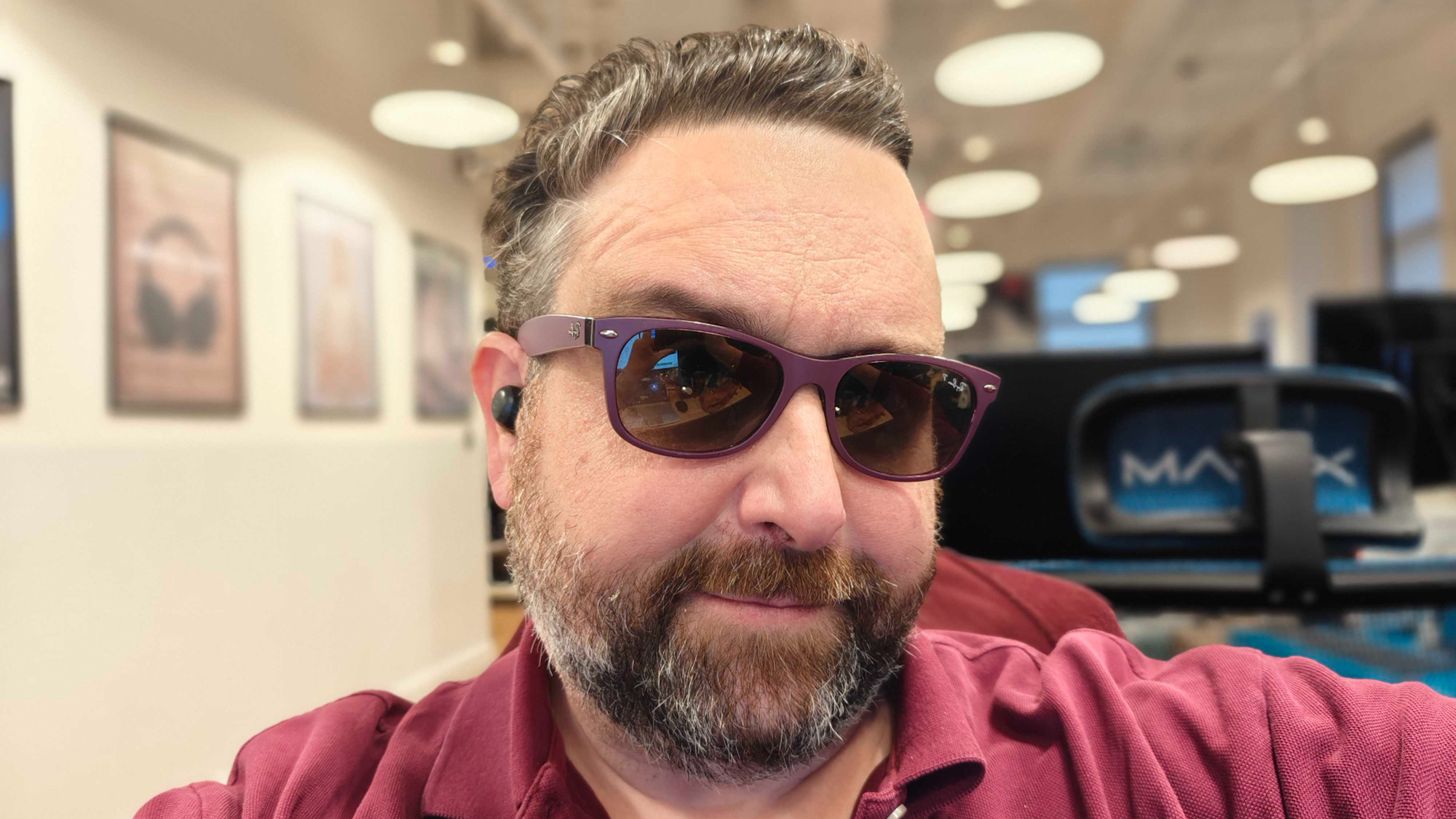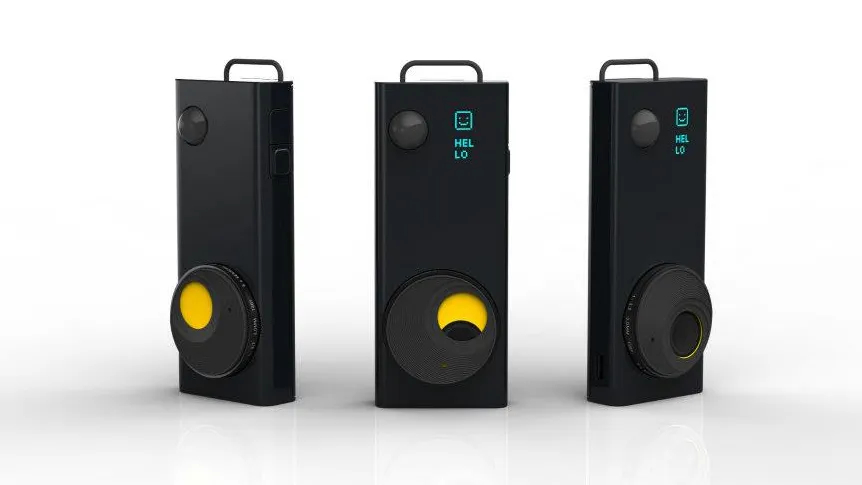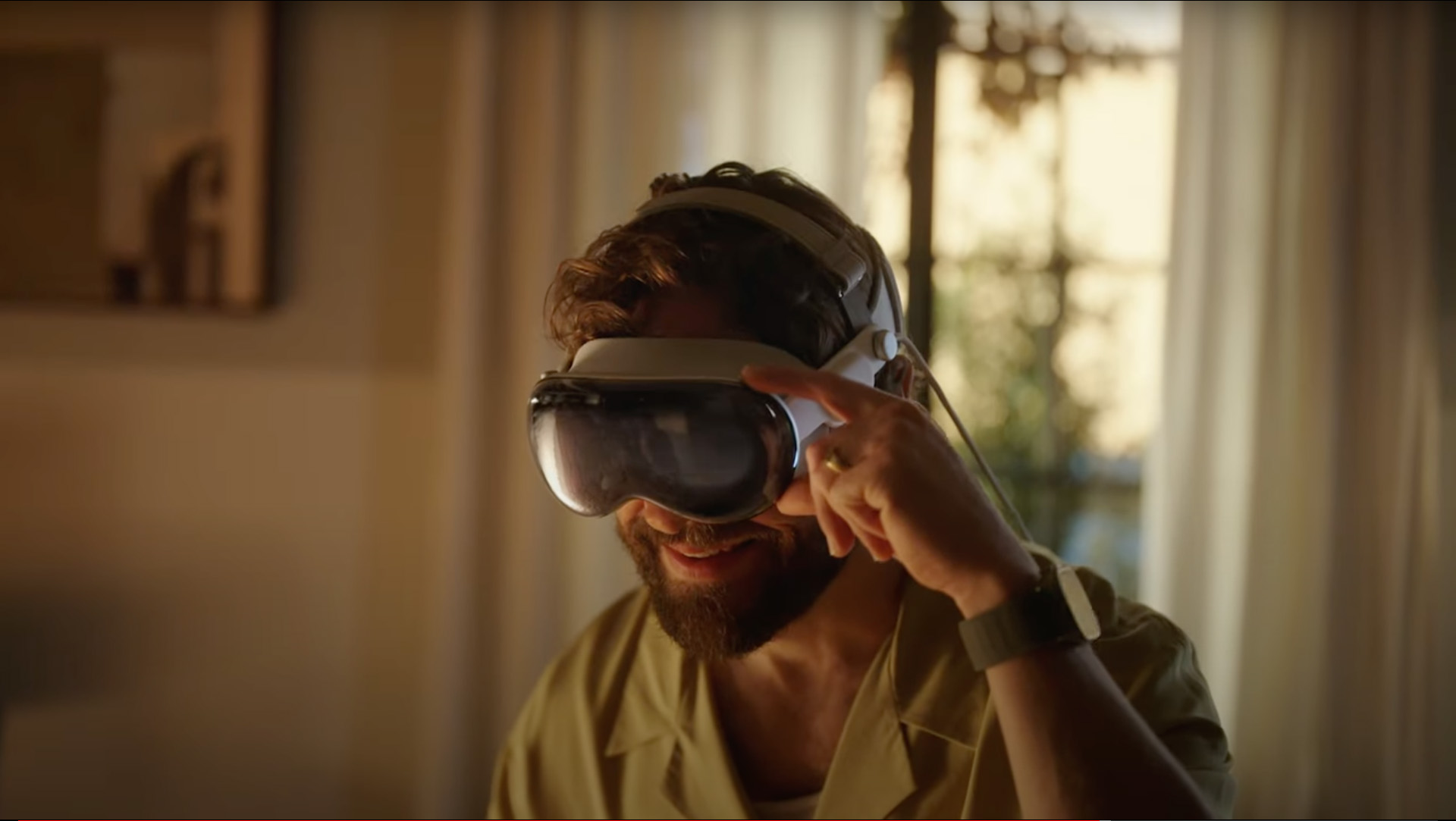The Ray-Ban Meta camera glasses feel inevitable but I'm worried about the high creep factor
Can't help but imagine the worst case scenarios

Sign up for breaking news, reviews, opinion, top tech deals, and more.
You are now subscribed
Your newsletter sign-up was successful
When we saw the new Ray-Ban Meta smart glasses with the built in video camera, capable of live streaming directly to Facebook from your face, our international newsroom reacted in a complicated way. Many folks saw a device that finally seemed mainstream enough to appeal to everyday vloggers, not just tech geeks. A few of us (all Americans) had a decidedly negative first reaction.
Let's talk about the positive first. These Ray-Ban Meta smart glasses actually look pretty cool, and the price is shockingly good for what they offer. A nice pair of Ray-Ban Wayfarers can already cost close to $200 in the US. I know, I was recently shopping for a pair for myself, and instead my girlfriend bought me a really snazzy set in purple as a birthday gift.

She considered waiting for the new Ray-Ban Meta glasses but decided to go for a more fashionable pair. There wasn't anything wrong with the Meta set; she just thought that would be a gift that was for me too much like going to work. I prefer the glasses I got, but I’m really into the idea of smart glasses.
It'd be nice to have pics of everything with no effort
I like the idea of an everyday camera that can semi-passively record important moments. I had an Autographer camera until the device died and the company went out of business. It was a little camera with motion and light sensors that you wear around your neck, or clip somewhere conspicuous. At the end of the day, you'd see a collection of shots it decided to take. They weren't great, but I never felt like I missed anything important while I wore the little doodad.
I can imagine getting into the habit of wearing Meta glasses and casually asking them to take photos or record a few moments of video when I see something noteworthy. Not artistic shots; just … moments. Moments worth recording for posterity, or for sharing.

Moments to use as evidence? One friend (American) suggested that we'll see more ‘Karen’ videos if Meta glasses catch on. We won't have more ‘Karens,’ they'll just get caught on camera more often. Maybe that's a good thing. More citizens with cameras, recording the truth, can be good for everyone.
Another colleague suggested that these glasses will be used to record people who don't want to be recorded. She worried about predatory men recording women and girls without their knowledge or consent.
Sign up for breaking news, reviews, opinion, top tech deals, and more.
I worry about smart glasses and who will misuse them
Unfortunately, it's not hard to imagine the negative possibilities Meta glasses enable. There have been terrible events in the past few years that have been broadcast live over social networks, with the purpose of earning infamy and spreading fear. I don't need to cite a specific incident, there have been too many.
Why did this seem to be an American concern? I can't speak for my compatriots, but I was a teacher here in the US for years. In addition to teaching English and SAT test prep, I also had to teach students how to respond if somebody showed up to the school with a gun.
It's one of those things you don't think about when you become a teacher, like what you'll say when you run into students at the grocery store, or how to respond when they want to talk to you about a break-up. Training to escape a terrifying emergency seems so personal and so removed from the business of classwork, but there it is. It's become an accepted part of our education routine.
We teach students to move to the back of the room. We cover the windows and turn out all the lights. Everybody stays quiet. We do nothing to attract attention. Attention, we are told, is very attractive to people who are evil.
So it's no surprise that our gut reaction to the Ray-Ban Meta glasses was more of a punch than a flutter. We are taught to brace ourselves. We are also taught that attention can be food for terror, and these glasses offer the ability to show the world anything you want the world to see, if the world will pay attention. That can be a scary thought.
When is it appropriate to worry about new tech?
Does it have to be a scary thought? We can always think of the worst case examples for how something will be used. When Ford announces a new F-150 Lightning pickup truck, we don't lament over how many accidents that truck might eventually cause. We don't think of the worst things that can happen with a pickup truck. That would be obscene, and frankly depressing.

When a product is dangerous on its own, then it is appropriate to focus on the worst possibilities. If Ford announced a pickup truck that drove itself and had no front window, we would scream to the mountaintops about the danger it posed. Otherwise, we just want Ford to take as many precautions as possible to make its truck safe.
The same is true for smart glasses. If Meta launched a camera that was meant to be hidden in your house to record secret, hidden moments, I'd say that was a problem worth sounding the alarm. That's not what we got.
The Ray-Ban glasses have a bright light that shines whenever the camera is active. Is that enough? It's certainly annoying, when you're the person who isn't wearing the glasses. Can you hide the light? Yes, and then you've crossed the line.
The fact is, a camera on every face seems inevitable. Whether it's a smartphone-type wearable, or smart glasses, or even just an action camera, there are too many technologies advancing towards your nose. Ray-Ban and Meta may be the first to offer a worthy product, but I could spin a wheel of tech companies matched with Luxottica brands and it would make a believable competitor.

Apple and Oakley working together on smart glasses? Sure, why not. Samsung Galaxy Goggles sold through Sunglass Hut? Just as likely. It feels like the dam holding back the flood of face-mounted technology is about to break, and a camera will be the most common component among the disparate device options.
If someone crosses the line, it won't be the glasses at fault
It feels inevitable, and we’re not ready for it. That’s the refrain for technology in 2023
I have to hope that people will be responsible and respectful of each other, and that people do bad things because they are bad people, or they make bad decisions, not because some good technology came along and helped them do it.
It has already happened, so the technology is already here. Ray-Ban Meta glasses don’t make violence and harm easier to cause. Meta didn’t invent live streaming, and Ray-Ban smart glasses aren’t the first camera that you can wear while you drive a go-kart.
I hope that these smart glasses, or any smart glasses, can stay away from terrible incidents, but if it happens, it won’t be Ray-Ban’s fault for making Wayfarers with a video camera. Meta has more responsibility, since it is capable of filtering and monitoring content on its platform, but it won’t be the smart glasses that crossed the line.
Smart glasses are a good idea, and likely inevitable. When these devices become popular, the camera will be right up front. Just as we adapted to everybody carrying cameras and broadcasting in their pockets with smartphones, we will need to adapt to a world where the camera is no longer hidden away, but rather close to our eyes, waiting for us to blink.
It feels inevitable, and we’re not ready for it. That’s the refrain for technology in 2023.
You might also like:

Starting more than 20 years ago at eTown.com. Philip Berne has written for Engadget, The Verge, PC Mag, Digital Trends, Slashgear, TechRadar, AndroidCentral, and was Editor-in-Chief of the sadly-defunct infoSync. Phil holds an entirely useful M.A. in Cultural Theory from Carnegie Mellon University. He sang in numerous college a cappella groups.
Phil did a stint at Samsung Mobile, leading reviews for the PR team and writing crisis communications until he left in 2017. He worked at an Apple Store near Boston, MA, at the height of iPod popularity. Phil is certified in Google AI Essentials. His passion is the democratizing power of mobile technology. Before AI came along he was totally sure the next big thing would be something we wear on our faces.